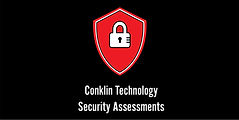PCI DSS
EXPERT GUIDANCE
PCI DSS (Payment Card Industry Data Security Standard) governs the way credit and debit card information is handled. The Standard applies to any organization (regardless of size or number of transactions) that accepts, stores, transmits, or processes cardholder data. Although not federally mandated in the United States, PCI DSS is mandated by the Payment Card Industry Security Standard council. The council is comprised of major credit card bands and is an industry standard. Some states have even incorporated the standard into their laws.
The six primary control objectives within the PCI DSS framework are as follows:
Build & Maintain a Secure Network:
Install and maintain a firewall configuration to protect cardholder data
Do not use vendor-supplied defaults for system passwords and other security parameters
Protect Cardholder data:
Protect stored cardholder data through encryption and access rights
Encrypt transmission of cardholder data across open, public networks
Maintain a Vulnerability Management Program:
Use and regularly update anti-virus software or programs
Develop and maintain secure systems and applications
Implement Strong Access Control Measures:
Restrict access to cardholder data by business need to know
Assign a unique ID to each person with computer access
Restrict physical access to cardholder data
Regularly Monitor and Test Networks:
Track and monitor all access to network resources and cardholder data
Regularly test security systems and processes
Maintain an Information Security Policy
Organizations that comply with its requirements are in a better position to spot vulnerabilities that could be exposed by criminal hackers or lead to internal data breaches – thus protecting customers from stressful situations and organizations from embarrassing or costly security incidents.
%20.jpg)